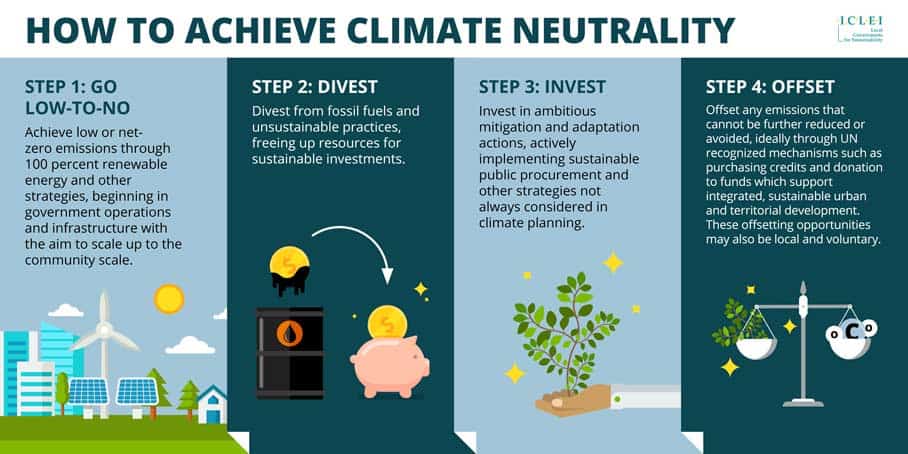COP24: Outcomes Strengthen Multilevel Governance for Raising Ambition
Multilevel governance is essential to the implementation of resilient infrastructure in cities around the world. For our spotlight on urban infrastructure, Jisun Hwang, Senior Climate Advocacy and Policy Officer at ICLEI – Local Governments for Sustainability, sums up what COP24 holds for local governments’ resilience strategies.
In 2018, COP24 in Katowice presented a crucial inflection point, leading to a refining of details on local and regional policies, strategies, regulations, and action plans to further align them with the implementation of Nationally Determined Contributions (NDCs). With a view to planning ahead for 2019, this article zooms in on three key Katowice outcomes for cities and regions: 1) enhancing the level of ambition; 2) preparing for long-term low emission climate-resilient development strategies; and 3) strengthening provision of the means of implementation.
Enhancing the Level of Ambition
First, COP24 produced an enabling framework for cities and regions to be an integral part of raising ambition for the next round of NDCs by 2020. The COP invited national governments to consider the outcome, inputs, and outputs of the Talanoa Dialogue in preparing their NDCs. This mandate confers a significant visibility and recognition for the year-round Cities and Regions Talanoa Dialogues mobilisation. It is facilitated by ICLEI as the focal point of the Local Governments and Municipal Authorities (LGMA) constituency at the UNFCCC.
Local and regional governments worldwide hosted 60 sessions of Cities and Regions Talanoa Dialogues in 40 countries in 2018, strengthening the urban-climate nexus in NDC implementation through multilevel governance approaches. This process was complemented through the active LGMA leadership of ICLEI, wherein ICLEI hosted 8 agenda-setting webinars, provided 60 mail updates, and daily coverage at the Bonn Climate Change Conference (April-May 2018) and at COP24, mobilising over 15 local and regional government representatives to take part in Talanoa Dialogues held on 6 May and 11 December 2018.
Preparing for Long-Term Strategies
Second, COP24 reinforced the need for a long-term global response to climate change. For this, cities and regions are already scaling up their actions. The COP reiterated its invitation that national governments submit long-term low emission development strategies by 2020, opening a window of opportunity for cities and regions to provide a substantial contribution through their mid-century climate neutrality targets.
For example, local and regional governments are leading the way by starting with government operations through ICLEI’s call to action in addressing climate neutrality, as part of its Montréal Commitment and Strategic Vision 2018 – 2024. The ICLEI Montréal Commitment encourages cities and regions to aim for 100 per cent renewable energy and divest from fossil fuels as important steps towards achieving climate neutral government operations and infrastructure.
This vision, consisting of four key steps as the ICLEI climate neutrality framework (see Figure 1 below), was designed to be a holistic process that includes ambitious climate change mitigation and adaptation at home and additional contributions to global climate processes and mechanisms.

ICLEI climate neutrality framework four step process.
Empowering Cities and Regions
Third, COP24 empowered cities and regions regarding means of implementation. The COP welcomed the decision of the Standing Committee on Finance (SCF) to focus on sustainable cities at its 2019 Forum. This historic mandate stems from the recognition that cities and regions play a critical role in helping national governments make finance flows consistent with low emissions and climate-resilient development pathways.
The Marrakech Partnership for Global Climate Action (MPGCA) Human Settlements Thematic Group action event at COP24 helped highlight that more than 29 trillion US dollars are needed for investment in cities, to be invested in multilevel finance processes, tools, and systems that help enable the flow of finance to local and regional governments.
The 2019 SCF Forum would be a first concrete step in addressing this urgent need by bringing it under the purview of the SCF which assists the COP in exercising its functions with respect to the Financial Mechanism of the UNFCCC. The twentieth meeting of the SCF, to be held on 21st and 22nd March would solidify the collection of relevant input from cities and regions in the lead up to the SCF Forum on climate finance and sustainable cities.
Especially important would be its focus on producing a strong outcome, unlocking the potential of climate finance support for local and regional governments in their NDC implementation.
Advancing on Multilevel Governance
In a nutshell, COP24 laid a strong foundation in advancing on strengthening multilevel governance in the areas of ambition, long term strategies, and means of implementation. Local and regional governments, in cooperation with their national government peers, are well-advised to build upon these outcomes to operationalise a country-driven multilevel governance framework for NDC implementation.
A series of milestone events in 2019 is set to help achieve this goal further, as cities and regions will actively engage at the three Regional Climate Weeks, International Conference on Climate Action, Bonn Climate Change Conference (June 2019), ICLEI Resilient Cities Congress 2019, and UN Secretary General’s summit, going forward.
- COP24: Outcomes Strengthen Multilevel Governance for Raising Ambition - 28. March 2019
- Fostering Multilevel Governance: The Cities and Regions Talanoa Dialogues - 25. September 2018
